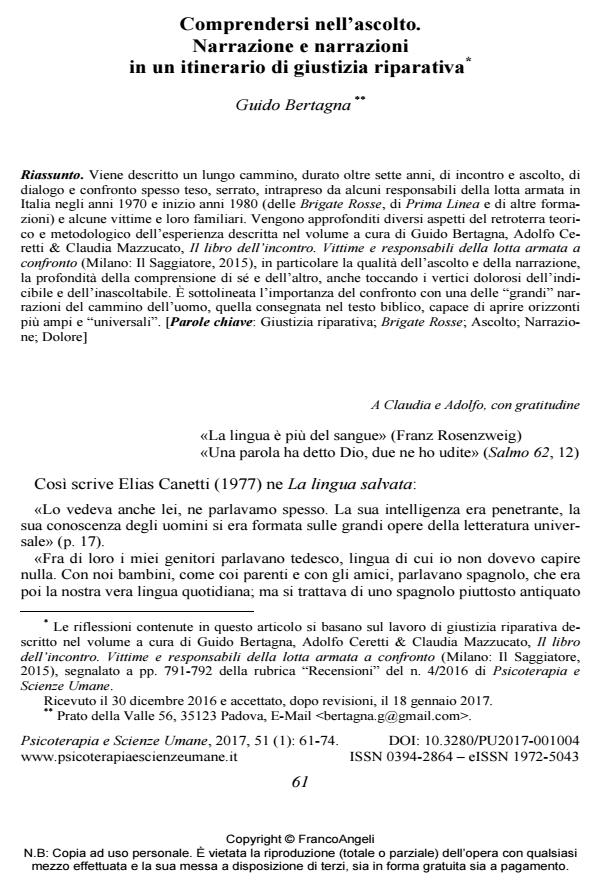Understanding ourselves during the listening process. Narrative and narratives in a project of Restorative Justice
Journal title PSICOTERAPIA E SCIENZE UMANE
Author/s Guido Bertagna
Publishing Year 2017 Issue 2017/1
Language Italian Pages 14 P. 61-74 File size 63 KB
DOI 10.3280/PU2017-001004
DOI is like a bar code for intellectual property: to have more infomation
click here
Below, you can see the article first page
If you want to buy this article in PDF format, you can do it, following the instructions to buy download credits

FrancoAngeli is member of Publishers International Linking Association, Inc (PILA), a not-for-profit association which run the CrossRef service enabling links to and from online scholarly content.
A long journey which lasted more than seven years, characterized by listening and dialogue, at times tense and difficult, between exponents of Italian terrorism of the 1970s and early 1980s (mostly of Red Brigades, Prima Linea and other organizations), on the one hand, and victims and their relatives, on the other, is described. Various aspects of the theoretical and methodological background of the experience described in the book edited by Guido Bertagna, Adolfo Ceretti & Claudia Mazzucato Il libro dell’incontro. Vittime e responsabili della lotta armata a confronto (Milan: Il Saggiatore, 2015) are discussed, particularly the quality of listening process and narration, the depth of understanding self and other, reaching also the pain of what cannot be told nor heard. The relevance of one of the "great" narratives of man, namely the Bible, which can open up wider and "universal" horizons, is emphasized.
Keywords: Restorative justice; Listening; Terrorism; Narration; Sorrow
Guido Bertagna, Comprendersi nell’ascolto. Narrazione e narrazioni in un itinerario di giustizia riparativa in "PSICOTERAPIA E SCIENZE UMANE" 1/2017, pp 61-74, DOI: 10.3280/PU2017-001004